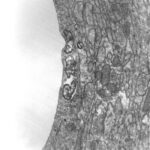Deadly Esophageal Cancer: Breakthroughs in Detection and Treatment
Esophageal cancer is a formidable healthcare challenge with a high mortality rate. This article examines its primary forms, adenocarcinoma and squamous cell carcinoma, highlighting prevention strategies and the need for improved detection methods. It also explores current and innovative treatments, emphasizing the role of clinical trials. Statistics on prevalence and survival rates underscore the urgent need for advancements in this field. This comprehensive review aims to provide a detailed understanding of esophageal cancer, its detection, and breakthroughs in treatment.

Key Takeaways
- Adenocarcinoma and squamous cell carcinoma are the most common types of esophageal cancer.
- Prevention measures such as avoiding tobacco and alcohol, maintaining a healthy weight, and managing acid reflux can reduce the risk of esophageal cancer.
- Currently, there is no standard screening test for esophageal cancer, but certain procedures like endoscopy can help detect abnormalities or early signs of cancer.
- Treatment options for esophageal cancer include surgery, radiation therapy, chemotherapy, targeted therapy, and immunotherapy. Ongoing research aims to improve early detection methods and develop more effective treatments.
Understanding Esophageal Cancer: A Brief Overview
In the course of the last few decades, significant progress has been made in understanding the complexities of esophageal cancer, a deadly disease that presents in two primary forms: adenocarcinoma and squamous cell carcinoma. Breakthroughs in esophageal cancer detection methods have greatly contributed to this progress. Advanced imaging techniques and endoscopic procedures have increased the chances of early identification of the disease, ultimately improving patient prognosis. Concurrently, there are emerging treatment options for esophageal cancer, including targeted therapies and immunotherapies, that offer hope for improving survival rates. These advancements underscore the importance of continued research in this field to further enhance our understanding, detection, and treatment of esophageal cancer.
The Two Main Types of Esophageal Cancer: Adenocarcinoma and Squamous Cell Carcinoma
Esophageal cancer, a severe and often lethal disease, primarily manifests as either adenocarcinoma or squamous cell carcinoma, each with distinct characteristics and genetic underpinnings. With breakthroughs in genetic research, our understanding of these cancers has deepened. Adenocarcinoma, often linked to acid reflux and obesity, typically arises from glandular cells in the lower esophagus. Conversely, squamous cell carcinoma, associated with tobacco and alcohol use, develops from flat cells lining the upper and middle esophagus. These insights have propelled advances in personalized medicine, enabling targeted therapies bespoke to each cancer type. The development and deployment of molecular diagnostic techniques are enhancing early detection, increasing the likelihood of successful treatment, and improving prognosis for patients afflicted with these formidable cancers.
Lifestyle Choices and Risk Factors for Esophageal Cancer
Understanding the correlation between specific lifestyle choices and the increased risk of esophageal cancer is crucial for effective prevention and early detection of this deadly disease. The prevalence of esophageal cancer in different populations indicates that certain behaviors, such as tobacco and alcohol use, unhealthy diet, and lack of physical activity, significantly increase the risk. Furthermore, chronic conditions like gastroesophageal reflux disease (GERD) and obesity are also associated with a higher incidence of this type of cancer. Advancements in genetic testing for esophageal cancer are now allowing for earlier detection and personalized treatment strategies, further emphasizing the importance of understanding and addressing the lifestyle and genetic risk factors associated with this disease.
The Role of Diet and Exercise in Preventing Esophageal Cancer
Both a balanced diet, rich in fruits, vegetables, and whole grains, and regular physical activity are fundamental components in the prevention of esophageal cancer. The impact of environmental factors on esophageal cancer risk is significant. For instance, a diet high in processed foods and low in fiber increases cancer risk. On the other hand, regular physical activity can contribute to maintaining a healthy weight, reducing the risk of adenocarcinoma, a type of esophageal cancer linked to obesity. The role of genetic factors in esophageal cancer development is also significant, but their impact can be mitigated through a healthy lifestyle, highlighting the importance of diet and exercise. Therefore, investing in healthful eating habits and regular exercise can be an effective strategy in preventing esophageal cancer.
The Importance and Limitations of Esophageal Cancer Screening
While there is an undeniable value in early detection of esophageal cancer, it is equally essential to recognize the limitations and potential risks associated with various screening methods. Advancements in early detection methods, such as endoscopy and imaging tests, have improved our ability to identify this cancer in its initial stages. However, these methods are invasive, costly, and may lead to false positives. Furthermore, challenges in implementing widespread screening programs, including accessibility, cost-effectiveness, and the need for highly trained professionals, remain significant. Considering the potential benefits and drawbacks, it is crucial to target screening efforts towards high-risk groups and continue research and development aimed at improving non-invasive, cost-effective, and accurate early detection techniques.
Diagnostic Tests and Procedures for Esophageal Cancer
In the realm of esophageal cancer, a variety of diagnostic tests and procedures are available to medical professionals, each offering unique insights into the presence and progression of the disease. Traditional methods like endoscopy, biopsy, and imaging tests provide valuable information about the tumor's location and stage. The esophageal cancer prognosis depends significantly on early and accurate diagnosis. Emerging diagnostic technologies, such as molecular profiling and next-generation sequencing, are paving the way for more precise detection and personalized treatment plans. These advancements have the potential to drastically improve the esophageal cancer prognosis by identifying the disease at an earlier stage and enabling targeted therapy. The integration of these novel technologies into clinical practice may revolutionize the approach to esophageal cancer diagnosis and treatment.
The Link Between Barrett’s Esophagus and Esophageal Cancer
Over the course of several years, Barrett's esophagus can develop into esophageal cancer, shedding light on the intricate link between these two medical conditions. This link is pivotal, as Barrett's esophagus is a condition where the esophageal lining experiences changes due to chronic acid reflux, making it a high-risk factor for esophageal cancer. Recognizing this link has led to novel approaches for early detection of esophageal cancer. Such approaches include regular endoscopic surveillance of patients with Barrett's esophagus to detect precancerous changes. Additionally, advancements in molecular and genetic profiling have opened new opportunities for early recognition of malignant transformation. These developments represent a significant stride towards reducing mortality rates associated with this deadly form of cancer.
Current Treatment Options for Esophageal Cancer
The complexity of esophageal cancer necessitates a multi-modal treatment approach, and the choice of therapy often hinges on the type and stage of the disease. Traditional treatments include surgery, radiation, and chemotherapy, sometimes used in combination. However, advancements in targeted therapy, which directly attacks cancer cells, have shown considerable potential. This approach helps to minimize damage to healthy cells and can be tailored to the specific genetic makeup of a patient's tumor. Additionally, immunotherapy for esophageal cancer treatment is gaining traction. This method boosts the body's own immune system to fight the cancer. Both targeted therapy and immunotherapy represent significant strides in esophageal cancer treatment, offering personalized options that adapt to individual patient needs.
The Use of Surgery in Treating Esophageal Cancer
Surgery, as a cornerstone of esophageal cancer treatment, often involves the removal of the tumor and surrounding lymph nodes, and it can be combined with other therapies such as radiation or chemotherapy for comprehensive care. Advancements in minimally invasive surgery have revolutionized this aspect of care by reducing complications and recovery times. Procedures like endoscopic mucosal resection and endoscopic submucosal dissection are now commonplace. Moreover, the role of neoadjuvant therapy in surgical treatment is increasingly recognized, where chemotherapy or radiation is administered before surgery to shrink the tumor, making it easier to remove and improving the chances of complete removal. This multimodal approach is showing promise in improving patient outcomes, offering hope to those afflicted with this challenging disease.
Radiotherapy and Chemotherapy: Traditional Approaches to Esophageal Cancer Treatment
While surgery plays a crucial role in treating esophageal cancer, it is often radiotherapy and chemotherapy that serve as the traditional mainstay of comprehensive treatment plans. Recent advancements in radiation therapy have improved the precision and effectiveness of this treatment form, reducing side effects and enhancing patient comfort. Moreover, novel chemotherapy approaches have been developed to target cancer cells more specifically, reducing harm to healthy cells. These modern techniques have transformed the landscape of esophageal cancer treatment, improving outcomes and patient quality of life. Despite these strides, ongoing research is crucial to further refine these traditional therapies, combining them effectively with emerging treatments to provide the most comprehensive and successful approach to esophageal cancer care.
Exploring Newer Therapies: Targeted Therapy and Immunotherapy
In recent years, two groundbreaking therapies, targeted therapy and immunotherapy, have emerged as potential game-changers in the treatment of esophageal cancer, offering new hope for patients and medical professionals alike. Advancements in targeted therapy and immunotherapy have opened new avenues in the fight against this deadly disease. Targeted therapy, as the name suggests, involves drugs that specifically target the cancer cells, attacking the specific genetic changes that allow the cancer to grow. On the other hand, immunotherapy harnesses the power of the patient's immune system to combat the disease. These emerging treatment options for esophageal cancer have shown promising results in clinical trials, and they represent a significant breakthrough in cancer treatment, potentially improving survival rates and quality of life for patients.
Esophageal Cancer Statistics: Incidence, Mortality and Survival Rates
The statistical landscape of esophageal cancer, including incidence, mortality, and survival rates, provides a stark picture of the challenges and progress made in combating this disease. The American Cancer Society estimates that in 2021, approximately 19,260 new cases will be diagnosed, with a mortality rate that underscores the lethal nature of this cancer. However, the advent of esophageal cancer prevention strategies, such as maintaining a healthy lifestyle and managing gastroesophageal reflux disease, has shown potential in reducing incidence rates. Furthermore, advancements in early detection methods for esophageal cancer, including endoscopy and imaging tests, have improved the chances of survival. Still, with a five-year survival rate around 20%, there is an urgent need for continued research and development in both prevention and detection.
The Future of Esophageal Cancer: Recent Advances and Ongoing Research
Advancements in the realm of medical science have spurred a wealth of hope and anticipation for the future of esophageal cancer treatment and detection. Advances in genetic research have paved the way to a more profound understanding of the disease, allowing for the development of targeted therapies tailored to the patient's unique genetic makeup. This has led to the creation of novel immunotherapies for esophageal cancer, which function by boosting the body's immune response against cancer cells. While these strides mark significant progress, the journey towards eradicating esophageal cancer continues. Ongoing research endeavors are relentlessly working towards refining current treatment modalities and devising innovative detection methods, aiming to increase survival rates and improve patient outcomes.
Frequently Asked Questions
What Genetic Changes Lead to the Development of Adenocarcinoma and Squamous Cell Carcinoma in Esophageal Cancer?
Adenocarcinoma and squamous cell carcinoma, the most prevalent types of esophageal cancer, are both driven by specific genetic alterations. Genetic screening can identify these changes, aiding in early detection and treatment planning. Lifestyle factors, such as tobacco and alcohol use, can also contribute to the development of these cancers. Understanding the interplay between genetic changes and lifestyle factors is crucial for prevention and management of esophageal cancer.
Are There Any Specific Symptoms of Esophageal Cancer That Individuals Should Be Aware Of?
Esophageal cancer may present symptoms including difficulty swallowing, chest pain, weight loss, and chronic cough. It's essential to be aware of these signs, especially for individuals with risk factors such as tobacco or alcohol use, obesity, and chronic acid reflux. Lifestyle modifications like quitting smoking, reducing alcohol consumption, maintaining a healthy weight, and managing reflux can potentially mitigate these risks and aid in early detection, thus impacting outcomes positively.
How Do Targeted Therapy and Immunotherapy Work in Treating Esophageal Cancer, and What Are the Potential Side Effects?
Therapy advancements in treating esophageal cancer include targeted therapy and immunotherapy. Targeted therapy specifically attacks cancer cells by identifying unique proteins or gene mutations, thereby minimizing harm to healthy cells. Immunotherapy innovations harness the body's immune system to identify and destroy cancer cells. However, side effects may occur, including skin rash, fatigue, nausea, and in some cases, severe immune reactions. Medical consultation is crucial to understand potential risks and benefits.
What Are the Psychological Impacts of Esophageal Cancer Diagnosis and Treatment, and What Support Resources Are Available?
The psychological impacts of an esophageal cancer diagnosis and treatment can be significant, often leading to anxiety, depression, and emotional distress. However, various coping mechanisms, such as meditation and psychotherapy, can enhance emotional resilience. Support resources, including counseling, support groups, and educational programs, are invaluable for managing emotional wellbeing. It is crucial to recognize these psychological effects and seek appropriate support for comprehensive care.
How Does the Survival Rate of Esophageal Cancer Vary With Different Stages and Types of the Disease?
The survival rate of esophageal cancer varies widely based on the stage and type of the disease. Early-stage detection significantly improves prognosis. Adenocarcinoma and squamous cell carcinoma, the common types, have different survival rates. Dietary habits, a component of 'Esophageal Cancer Diet', and a thorough 'Risk Factors Analysis' can influence these rates. High-risk behaviors, such as tobacco and alcohol use, poor diet, and unmanaged GERD, can lead to late-stage detection and lower survival rates.
Conclusion
In conclusion, esophageal cancer poses a significant medical concern due to its high mortality rate. While risk reduction through lifestyle modifications and disease management is crucial, the limitations of current screening tests highlight the urgent need for improved detection methods. Contemporary research is exploring innovative treatment options such as targeted therapy and immunotherapy. Continuous advancements in research and clinical trials are pivotal in enhancing early detection and developing more effective treatments for this lethal disease.

This post has been generated by AI and was not reviewed by editors. This is Not legal advice. Please consult with an attorney.




